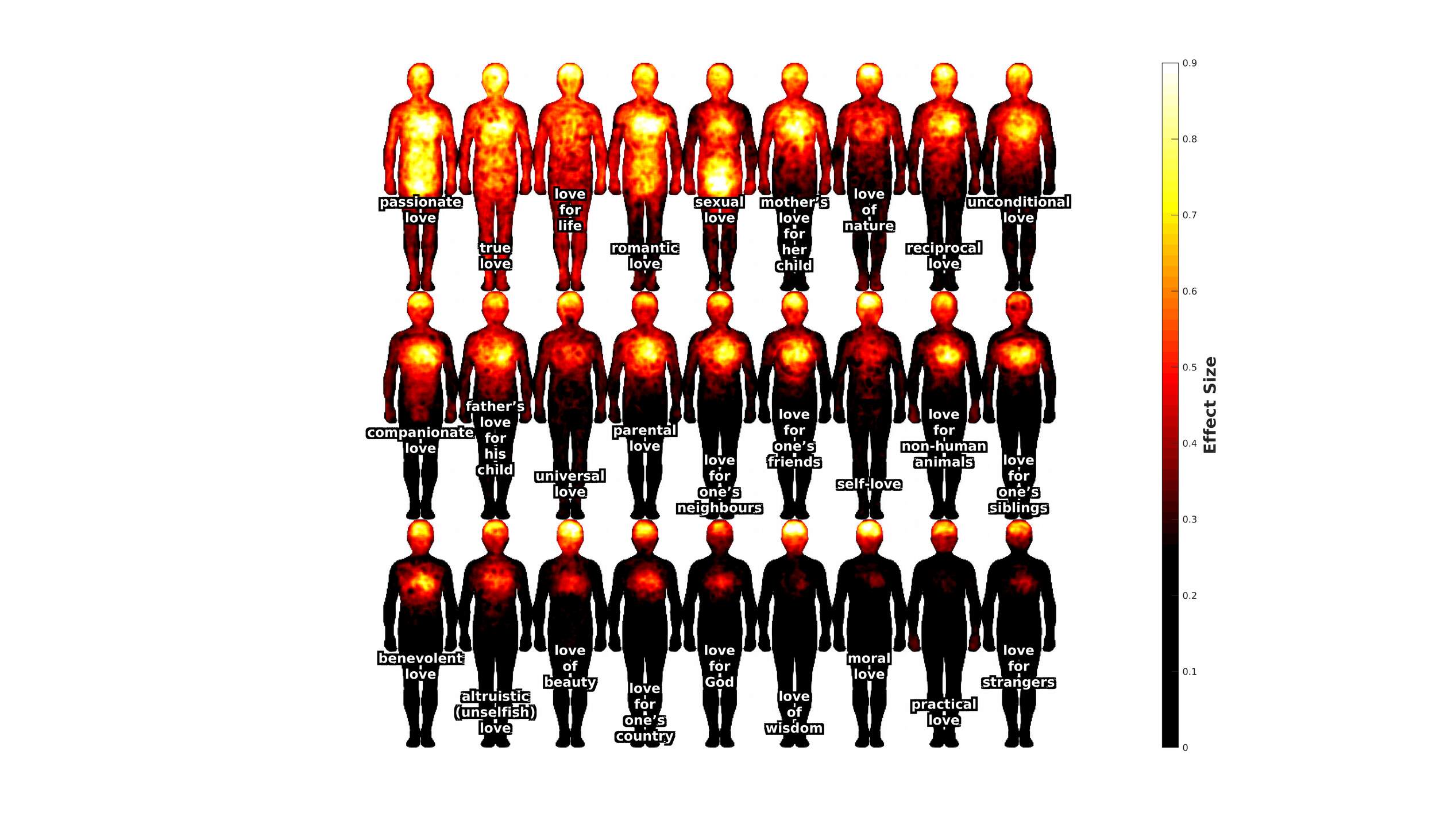There are so many different types of love, and we experience each type uniquely – but what does that actually look like? With the help of hundreds of volunteers, scientists have mapped where 27 distinct types of love are felt within the human body and revealed that it’s as much about the head as the heart.
The study was carried out by a team of researchers at Aalto University in Finland, who collected data from over 500 completed tasks across three online surveys. All participants were Finnish-speaking adults, mostly younger women, and the name of each of the 27 types of love was given in Finnish.
In the first experiment, participants were asked to use their computer mouse to “paint” an outline of a human body, showing where they personally feel sensations with different love types. The intensity of the feeling was also captured by registering how many times participants clicked the mouse in a given area.
The second experiment focused on how pleasant these love sensations feel, and how strongly the participants associate these feelings with physical touch. The third and final experiment asked participants about the similarities between the different types of love.
Here’s the completed map:

Each of the 27 types of love, arranged to show where participants said they feel each type and how strongly.
“It was noteworthy, though not very surprising, that the types of love associated with close relationships are similar and are the most strongly experienced,” said study coordinator Pärttyli Rinne in a statement. “It was also interesting to find a strong correlation between the physical and mental intensity of the emotion and its pleasantness. The more strongly a type of love is felt in the body, the more strongly it’s felt in the mind and the more pleasant it is.”
One of the key findings that stood out to the researchers was that all of the types of love were felt in the head. We often talk about following our head or our heart – these data suggest that you might not be able to separate the two so easily.
“When we move from more strongly experienced types of love to less strongly experienced types, the sensations in the chest area become weaker,” Rinne explained. “It may be that, for example, love for strangers or wisdom is associated with a cognitive process. It may also be that there are pleasant sensations in the head area. This is something that should be investigated further.”
The map that the team produced shows what they describe as a “continuum” of love, from the stronger, romantic types – which were felt throughout the body – to those that were only felt in one area.
However, Rinne did note that the same experiment repeated in a different population might produce very different results: “If the same study were done in a highly religious community, love for God might be the most strongly experienced love of all. Similarly, if the subjects were parents in a relationship, as in our ongoing brain study project, love for children could be the strongest type of love.”
Love is a notoriously tricky thing to define, though philosophers, writers, and artists down the ages have given it a good go. It can be hard to explain in words what it feels like – you just know. But seeing it mapped out like this helps scientists understand more precisely how people physically experience the many different forms of love, as well as raising a few more questions to be explored.
The study is published in the journal Philosophical Psychology.
[H/T: New Atlas]
Source Link: Where Inside Us Do We Feel Love?